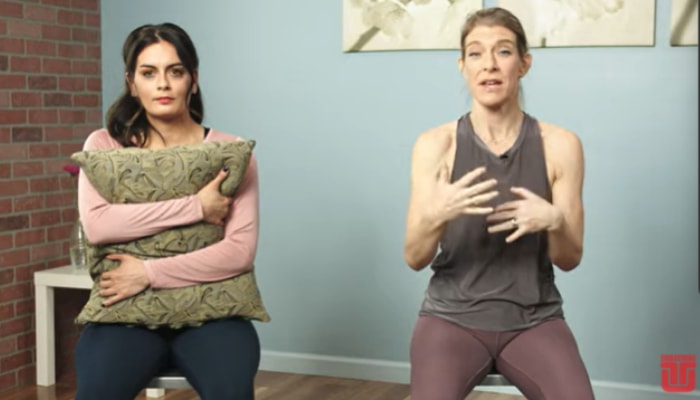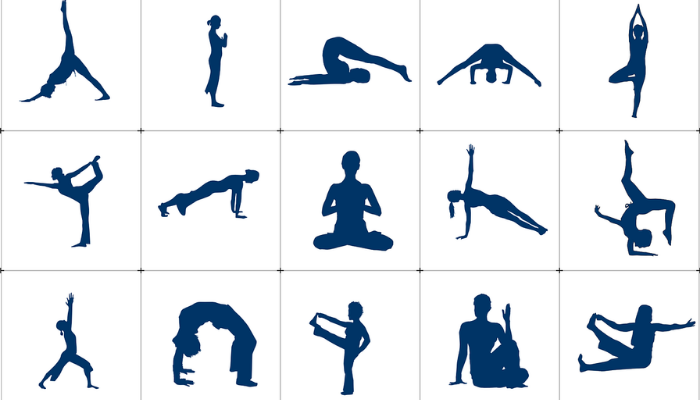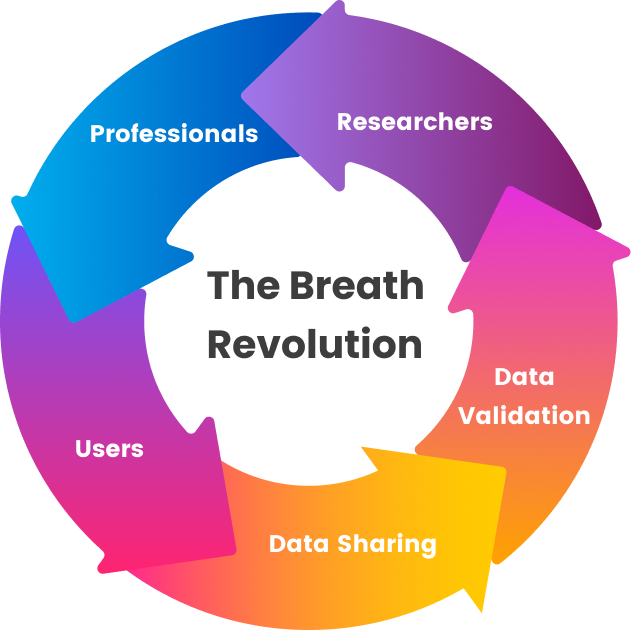Abdominal pain, bloating, constipation, heartburn, nausea or vomiting are surely unpleasant. But they could also be life-threatening. Americans make more than 100 million ambulatory care visits for digestive diseases every year, according to a study based on data from the National GI Survey conducted in 2015.
So, the question is not, “Why is gut health so important?”, but how your digestive system influences overall health and how we can take steps to make it better.
New research is being conducted every day and many experts are weighing in on the importance of better gut health.

Gut-Brain Axis and Breathing
Those who practice breathing deeply have noticed a difference in the way they feel. It relaxes you and calm your mind. Research suggests more is happening to your physical and emotional state when you take bigger slower breaths. Most know that exercise and diet is what health experts recommend for digestive health but at the very core lies better breathing practices.
Below we share more about how the digestive system influences your mood and stress and physically your diaphragm. We know that stress impacts your breathing patterns. So, if we can affect the stress with better breathing to release the diaphragm, it can lead to better digestion. Let’s learn more about how and what the science says behind that thought.
Gut-Brain Axis: The link
“Go with your gut”, they say but why and what is the connection to the brain and breathing?
First, it is important to know the Enteric Nervous System (ENS) consists of two lines that make up about 100 million nerve cells that line your gastrointestinal (GI) tract from esophagus to rectum.

The Cycle: Chicken or the Egg?
Studies are finding new evidence that irritation in the gastrointestinal (GI) system may trigger a response in the central nervous system (CNS) that can lead to mood changes. If you have suffered from any of these conditions, you know that a bad stomach ache impacts your mental state and how you communicate with others around you. Repeated stomach aches can compound this issue and it is such a concern, studies have been conducted around the implications.
GI (gastro-intestinal) symptoms could worsen with the stress of daily life, as outlined with studies published in Benef Microbes in 2016 and Am J Clin Nutr, in 2011.
Many doctors say that your gut is your second brain. Jay Pasricha, M.D., Director of the Johns Hopkins Center for Neurogastroenterology, shares how the ENS communicates directly with the brain and that makes all the difference to your health. Think about the connections now between your stomach ache, your mood, and how you are breathing? How is it affecting you emotionally and physically?
Breathing and Gut Health: The Bridge

Now, we all know about the “fight or flight” response and its effect on our mind and body through stressors. The American Psychological Association suggests that stress can slow down digestion or increase any discomfort in the bowels. Mandy Enright, MS, RDN, shares that slow and deep breathing can relax muscles in the intestinal tract and promote absorption and digestion. Deep breathing practice can also increase oxygen and stimulate blood flow as well.
Megan Riehl, PsyD, Clinical Psychologist and Assistant Professor at University of Michigan recommends diaphragmatic breathing, or deep breathing, as a proven relaxation technique. There are gastrointestinal (GI) benefits as well as it activates the diaphragm which allows for a gentle message of the intestines and stomach. This helps with abdominal pain, constipation and bloating.
According to Michigan Medicine’s Digestive and Liver Health services at University of Michigan Health, the link between the brain and the gut is critical to a holistic digestive health. Think about how all of those nerve cells acting as your second brain need to release the stress stimulation in order to improve your mental state and physical digestion. It is a clear demonstration of the link between mood changes, digestive health and the brain. It’s a cycle after all and if we are more aware, we have more control over our health.
So, here are breathing practices that may help you improve your digestive health:
1: Diaphragmatic Breathing
Here’s how to do Diaphragmatic Breathing:
- Sit or lie down in a comfortable position and close your eyes.
- Now, put one hand on the chest and the other hand on the abdomen. The hand on the abdomen should do the moving. The hand on the chest should remain still or should only move as the bottom hand moves.
- Breathe in through your nose for around four seconds and feel your abdomen expand. Hold the breath for 2 seconds.
- Breathe out slowly and steadily through your mouth for around six seconds. The mouth should stay relaxed. Repeat this exercise for 5-15 minutes.
2: 4-7-8 Breathing

Sleeping better and reducing stress could help your gut health long-term. The 4-7-8 breathing practice by Dr. Andrew Weil is a relaxing technique that can reduce anxiety and help in improving sleep quality. This technique activates the parasympathetic nervous system, which controls relaxation and when it is activated, the body suppresses the sympathetic nervous system which oversees the stress response; the fight or flight reaction, for instance.
Here’s how to do 4-7-8 Breathing:
- Find a comfortable and quiet
- Place your tongue against the back of your top teeth gently and exhale all the air around through your open mouth.
- Now close your mouth and inhale for 4 seconds from your nose.
- Hold your breath for 7 seconds
- Breathe out to the count of 8 seconds through the mouth.
- You can do four cycles and then gradually increase to eight cycles.
3:Extended Exhalation
The Vagus nerve sends a range of signals from digestive system and organs to the brain and vice versa. The vagus nerve is deeply linked to immune response, digestion, mood, and heart rate, according to the article titled, “Vagus Nerve as Modulator of the Brain-Gut Axis in Psychiatric and Inflammatory Disorders” (Frontiers in Psychiatry, 2018).
To reiterate, Dr. Stephen Porges was quoted by Tune Up Fitness that the easiest vagal stimulation can be done by exhaling slowly.

Tune Up Fitness founder, Jill Miller shared an extended exhalation strategy for relaxation using a pillow to understand and get the feedback about important zones of respiration – abdomen, ribcage and the neck – and stay in the gut and rib cage area. It’s another form of deep breathing.
- Hold a pillow around the torso with one hand on the ribcage and one on the abdomen.
- Feel the fullness around the hand around your abdomen and your ribcage; breathe in till you feel full.
- Hold to the count of four
- Exhale longer than you inhaled and hold to the count of six.
Miller recommends giving an extra pressure on the exhale as the pressure also stimulates your vagus nerve and the relaxation response.
It must be noted that you may experience some discomfort initially in these breathing techniques, so take your time and adjust accordingly before and after the session. Do consult with your doctor, trainer or therapist to do it correctly before you begin.
Other Ways To Improve Digestion

Diet, sleeping habits and physical exercise play a big role too just as they do in overall health conscious activities. Breathing exercise for digestion are not the only way but they definitely compliment your exercise regime.
What are the other different methods you have tried to improve your digestive health? Tell us in the comments. We’d love to hear your thoughts!












